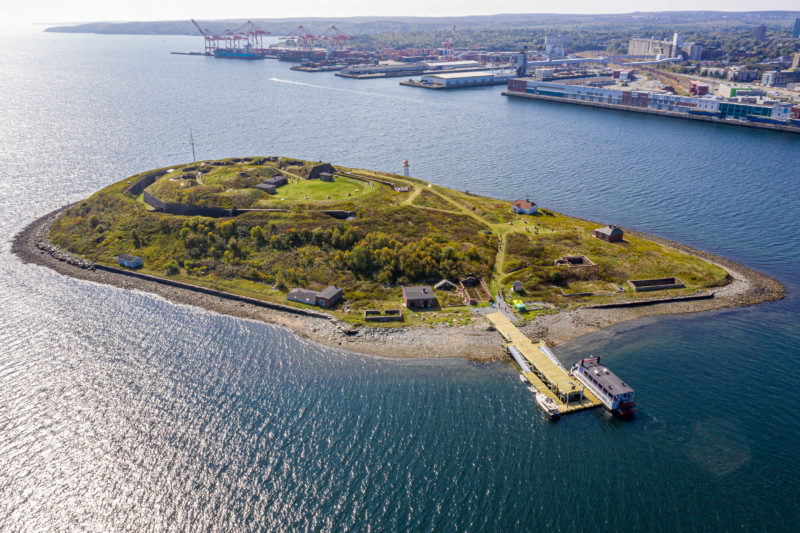Business Voice reached out to Develop Nova Scotia to weigh in on corporate real estate and its contributions to the province.
For those who are not familiar, corporate real estate is essentially the real property activities undertaken by a company or business enterprise to support its business operations.
“We are interested in trends in global corporate real estate for important reasons related to our work,” says Jennifer Angel, President & CEO of Develop Nova Scotia. “Specifically for the opportunity to support economic growth in N.S.”
A much-needed recovery plan post-COVID relies on economic revival as the cornerstone for rebuilding. To achieve said revival, Nova Scotia needs to attract more people to contribute.
There’s a direct and influential relationship between population growth and gross domestic product. To produce more goods and services, we need more people.
The province has a desirable quality of life, and that’s a major value proposition in attracting talented people.
“Our beautiful seacoast, urban/rural proximity, safety and relative affordability, among other factors, all contribute to a strong quality of life as an advantage,” says Angel.
Efforts to attract companies, including corporate head offices, to this province continue among economic development organizations, but the talent first approach is emerging as a high potential strategy for Nova Scotia. “Jobs increasingly follow talent; not the other way around, so doubling down on efforts to attract talent is critical in the new economy.”
The pandemic showcased the effectiveness of remote work from anywhere as a feasible model for a dispersed workforce. So talent attraction is not only a way to attract companies. Now an employee of a company in Toronto, can work from the shores of Nova Scotia.
“While there are differing opinions on the future of work model post-COVID, it is reasonable to expect that many will continue to work from away,” she says.
“The shift from traditional brick and mortar office environment to a mobile workforce is, we think, a big opportunity for Nova Scotia.”
The opportunity this presents is an emerging area of focus for Develop Nova Scotia along with NSBI, Tourism NS, Innovacorp, Events East and the Province of NS through the Work From Nova Scotia campaign, in addition to regular economic development activities to attract people and investment to Nova Scotia.

“As talent becomes transient, and one can work from anywhere, why not here?”
Typical corporate real estate portfolio success is measured on things like space efficiency, financial performance, asset appreciation, innovation and employee satisfaction and productivity.
“If companies can reduce real estate costs without loss to productivity or revenue, companies win and employees can enjoy a better quality of life.” says Angel.
“And places like Nova Scotia can realize growth in population and related economic impact by attracting migration from larger centres.”
Such attraction is embodied in creating places of great utility and better quality of experience. In lieu of traditional office space, remote workplaces require amenities, and critical services related to accessibility and connectivity.
“To contribute to quality of place for people, we’re working with local communities to develop and revitalize main streets and working waterfronts and we’re helping to build placemaking capacity so that community is supported to work together,” says Angel.
“The places we build are places for community to come together, to get to know each other, to experience nature, art and culture, to eat and shop, places for business; great places to live.”
Develop Nova Scotia is working on a portfolio of projects planned for 2021 including substantial improvements to Lunenburg’s working waterfront, a revitalization of Peggy’s Cove, key mixed-use projects on the Halifax waterfront including Queen’s Marque developed by Armour Group Limited and the Cunard project developed by Southwest Properties, a new Arts District, multipurpose waterfront infrastructure in ports around Nova Scotia, and the Internet for Nova Scotia Initiative.
With remote work becoming a critical legacy of the pandemic, a robust internet network across Nova Scotia has emerged as critical economic infrastructure. As businesses are obliged to be e-commerce capable and shift from foot traffic to online customers, working from home also demands higher digital accessibility.
“Lack of internet is a barrier, but we are working hard to solve the problem,” says Angel.
“Together with our partners, we are connecting rural Nova Scotia including rural HRM by delivering reliable, high speed rural internet,” she says. “We believe Nova Scotia will be among the first provinces in Canada to achieve greater than 95 per cent coverage.”
These place-based investments help build on our natural advantage. Place investment is as much about supporting the social fabric of our community as it is about economic development.

“Among the most exciting projects I am aware of on the horizon in Halifax is Wije’winen,” says Angel.
Meaning 'come with us' in Mi’kmaq, the Wije’winen Centre will be the new home of the Mi’kmaw Native Friendship Centre. An incredible example of inclusive placemaking and reconciliation, a place of community where 45 social and cultural programs for the community are delivered and where Indigenous and non-Indigenous people can come together.
The building committee is currently in the process of assembling stakeholders to advance the project for consideration.
“I believe this is exactly the type of project that contributes to building understanding and community, it supports economic development at a community level led by the Mi’kmaq people, and is a place where everyone can belong,” she says.
Nova Scotians have a significant role to play in the corporate real estate development plan. We are a small community with the advantage of knowing that we are in it together, and it’s important we work better together.
“How we talk to each other; our capacity to take risks, innovate and solve big problems through collaboration; how welcoming we are to new people and change; how we treat our most vulnerable community members; the urgency and commitment with which we tackle problems like systemic racism and climate change; say so much about the kind of people we are and the kind of place this is,” says Angel.
“How we rise to meet opportunities and challenges contributes to our wellbeing and our attractiveness as a place where people want to be or not be.”
Corporate real estate is being reimagined with this slew of transformation. Our province is in an enviable position compared to other province and territories. We are a very special place, and the rest of Canada knows it.
“At Develop NS, we think social infrastructure is economic infrastructure,” says Angel.
“And by building it together, we contribute to community resilience, as well as the magnetism of Nova Scotia to attract people who can work from anywhere to live here.”■
< Back to Articles | Topics: Responsible Business

